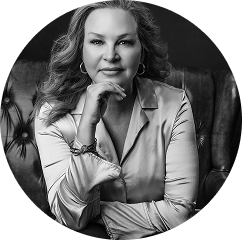
Manufactured homes — sometimes called mobile homes — are an affordable and flexible housing option across British Columbia. They can be found in manufactured home parks or placed on private land (bare land), offering a range of ownership options for different lifestyles and budgets.However, not all manufactured homes are the same when it comes to registration, title searches, and compliance. Understanding these details is crucial when buying or selling one of these homes.Let’s explore the key differences and what every buyer and seller should know about registration, de-registration, and electrical safety compliance in BC.
What Is a Manufactured Home?
A manufactured home is a factory-built dwelling designed to be transported to a site and installed either temporarily or permanently. These homes are built to meet the Canadian Standards Association (CSA) Z240 MH standard, ensuring they comply with national building and safety requirements for mobile or factory-built housing.Manufactured Home on Rented Pad in a Park
If a manufactured home is located in a mobile home park, the land is rented — not owned.In this case:- The home itself is considered personal property, similar to a vehicle.
- It is registered with BC’s Manufactured Home Registry (MHR), not the Land Title Office.
- The registration shows details like:
- The serial number of the home
- Make, model, and year
- The registered owner(s)
- The location (the park and pad number)
- Any liens or financial encumbrances
Manufactured Home on Bare Land
When a manufactured home sits on privately owned land (often called bare land strata or freehold property), ownership works differently.There are two possible scenarios:- The home is still registered with the Manufactured Home Registry
- The home remains “mobile” in legal terms and is treated as personal property.
- It has its own registration, separate from the land title.
- The home has been de-registered from the MHR and affixed to the land
- Once de-registered, the home is considered a permanent improvement to the land.
- The de-registration removes it from the Manufactured Home Registry.
- It then appears directly on the Land Title Office (LTO) search, under the property’s legal description.
- Ownership of the home and land is now one and the same.
Registered vs. De-Registered Homes: What You’ll See on Title
FeatureRegistered Home (Park or Bare Land)De-Registered Home (on Bare Land)Where it’s recordedManufactured Home RegistryLand Title OfficeType of ownershipPersonal propertyReal property (attached to land)Appears on title search?NoYesCan have liens or chattel loans?YesNo (mortgage registered against land instead)Land ownershipRented (in a park) or owned (bare land)Owned (part of land title)
Electrical Safety Compliance Before Sale
Here’s an essential point many buyers and sellers overlook:If a manufactured home has been de-registered, it must meet BC Electrical Safety Regulations before it can legally be sold or transferred.When a home is moved, altered, or converted into real property (i.e., de-registered and placed on land), it must pass inspection and have a valid Electrical Safety Certificate issued by Technical Safety BC.This ensures that the home’s wiring, electrical systems, and connection to the grid meet current safety standards.How to Obtain an Electrical Certification
If you’re selling or de-registering a manufactured home, you can obtain electrical certification through Technical Safety BC by following these steps:- Hire a Licensed Electrical Contractor
- Only a qualified electrician registered with Technical Safety BC can perform the inspection and necessary upgrades.
- Apply for a Silver Label Inspection or Equivalent Approval
- The contractor will apply for a Silver Label electrical approval (for older homes) or equivalent certification.
- This involves checking all electrical connections, outlets, and panels to ensure compliance with the Canadian Electrical Code.
- Correction of Deficiencies
- If any electrical work doesn’t meet code, it must be corrected before approval.
- Receive Certification
- Once approved, Technical Safety BC issues a certificate or Silver Label to confirm the home meets current safety standards.
Why This Matters for Buyers and Sellers
Understanding the difference between registered and de-registered homes — and ensuring compliance with electrical regulations — is critical for smooth transactions.- For Buyers: Always request a copy of the Manufactured Home Registration or Title Search, and confirm electrical certification before purchase.
- For Sellers: Ensure the home’s registration status is accurate and that electrical safety certification is in place to avoid delays or legal complications.

